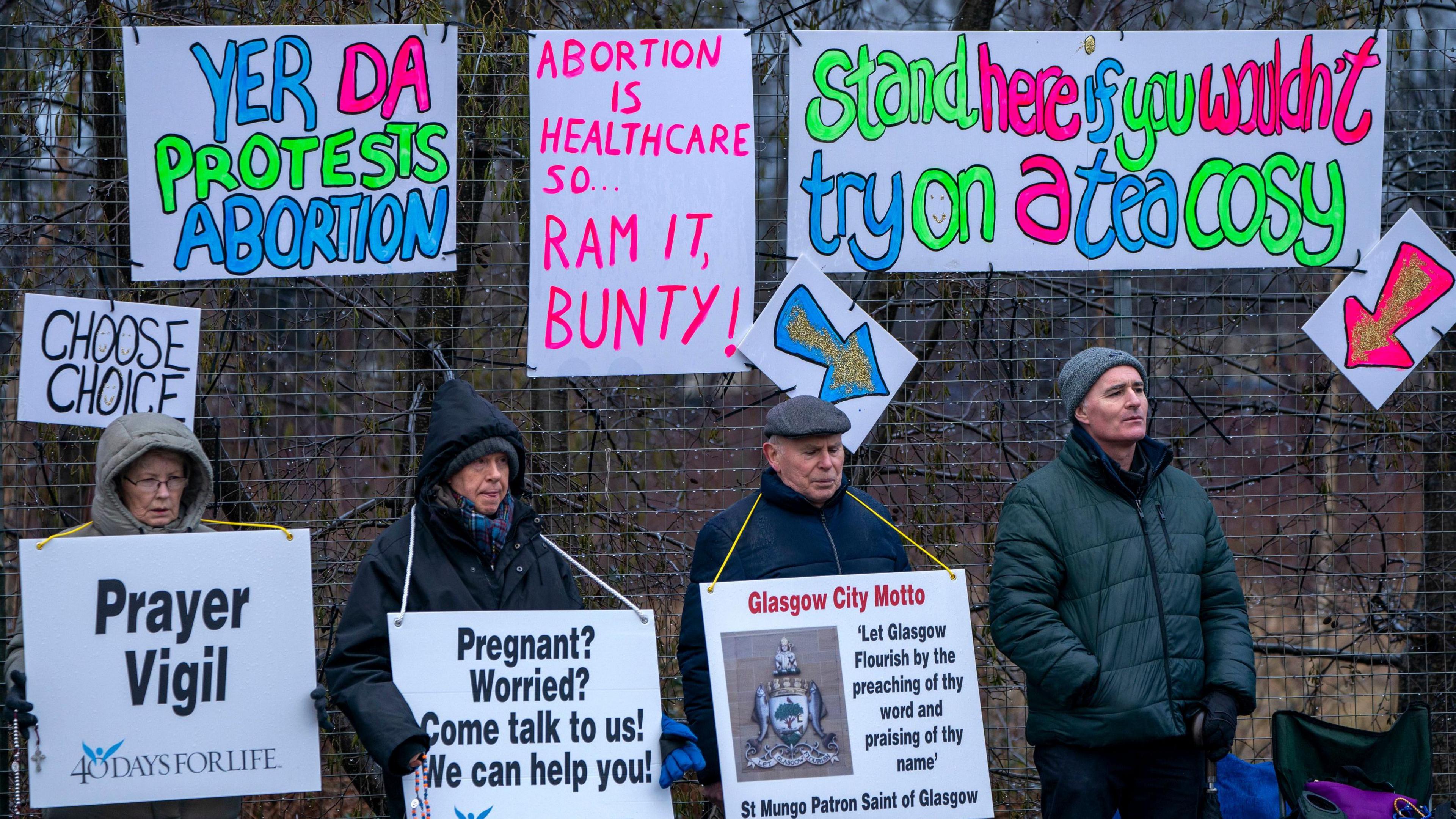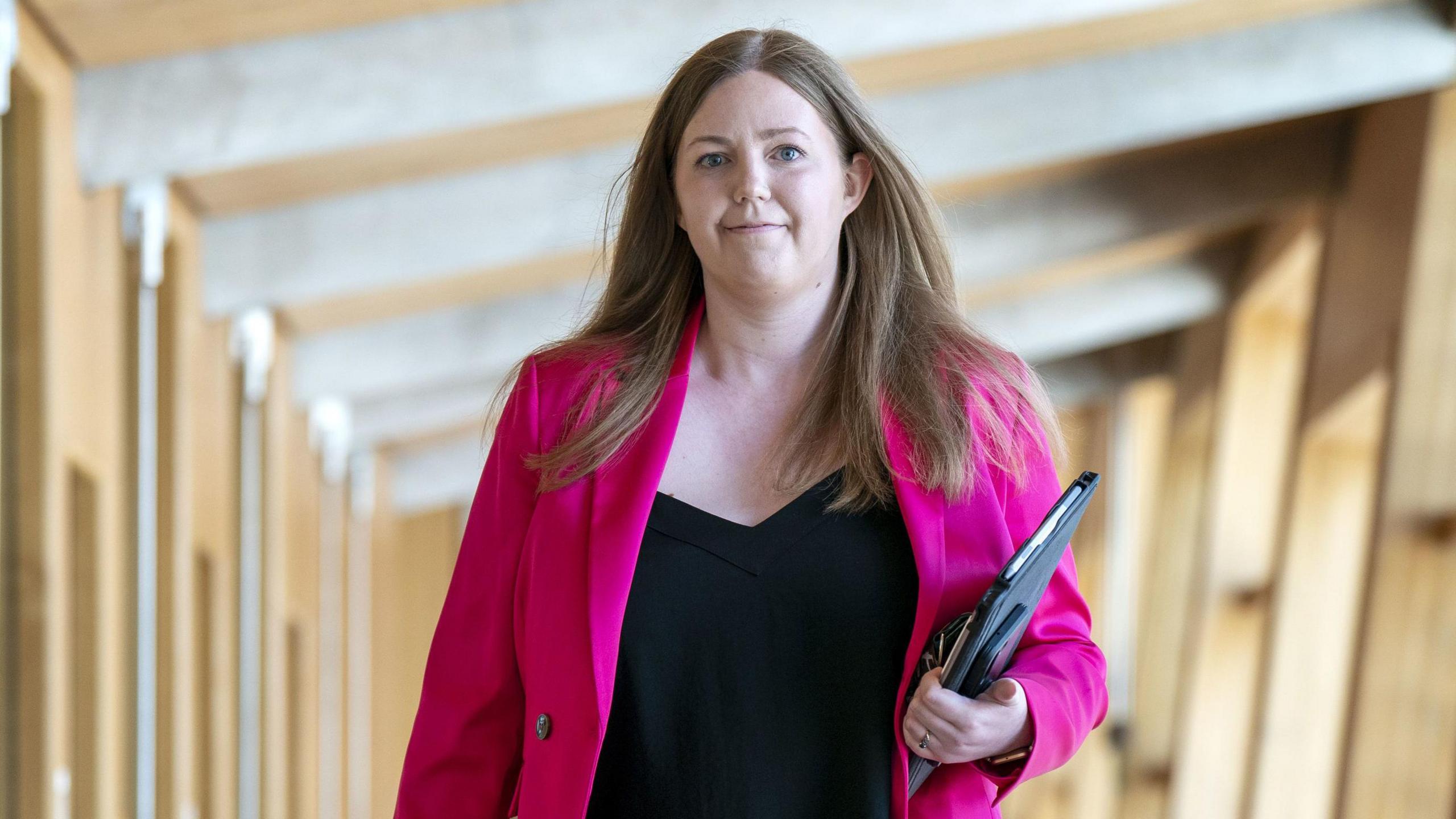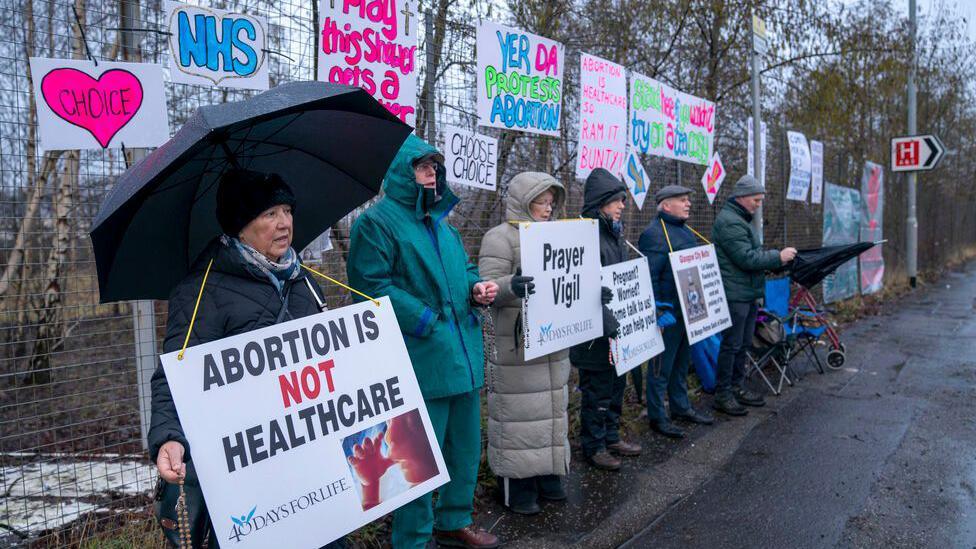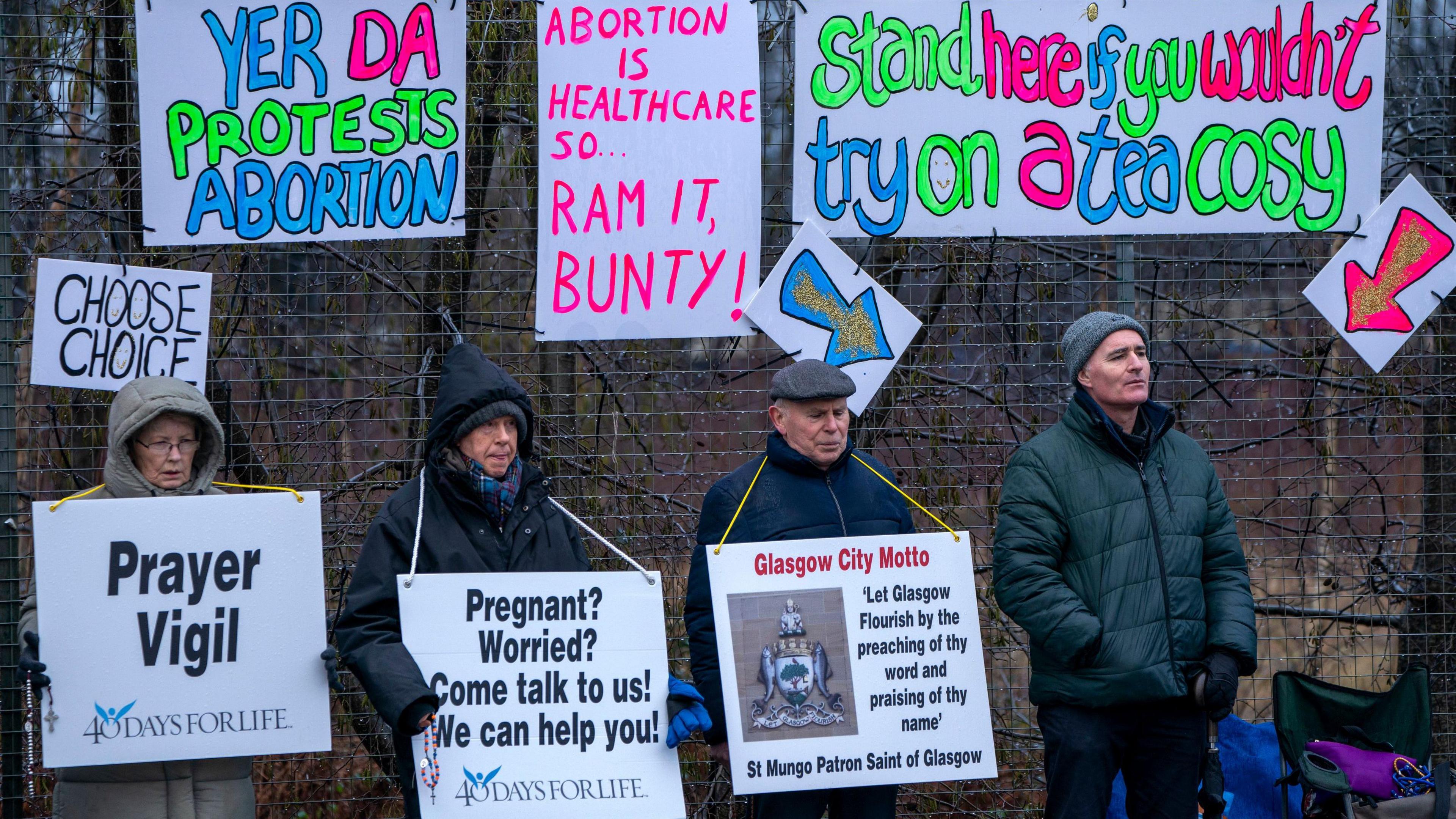Abortion protests near clinics banned as buffer zones law goes live

Protesters can no longer stand near clinics and behave in ways that could influence the decisions of women and staff to access services
- Published
The MSP responsible for the introduction of buffer zones near abortion clinics has hailed the first day of the new legislation as "crucial".
Green MSP Gillian Mackay was behind the bill which prevents anti-abortion protesters from gathering within 200m (656ft) of clinics where the procedure is carried out.
The zones, which are now live, were introduced as a result of Mackay’s Safe Access Zones Scotland Act, external, which was passed in June with the support of 118 MSPs from across the Chamber.
The law aims to stop the harassment of patients. There are now safe access zones at 30 health facilities around the country.

Green MSP Gillian Mackay has campaigned for the safe access areas for a number of years
The clinics affected by the bill include the Queen Elizabeth University Hospital in Glasgow, the Royal Infirmary in Edinburgh and Dundee's Ninewells Hospital.
Within the buffer zones, it is a criminal offence to behave in ways that could influence the decisions of women and staff to access services.
Stopping women and staff from entering the clinics or otherwise causing alarm, harassment or distress will also be an offence.
Anyone who breaks the new Safe Access Zone laws could be fined up to £10,000 or an unlimited amount in more serious cases.
Police Scotland will be responsible for enforcing the legislation.
Speaking as the laws came into force, Mackay said: "This is a crucial day for reproductive rights and healthcare in Scotland.
"I hope that it will be the end of the intimidation and harassment we have seen of people who are accessing healthcare."
She added: "Right from the first moment I saw footage of the protests, I could see how much damage they were doing and how many people were being impacted by them. I knew that I had to do everything I could to stop them.
"Over the days and weeks ahead, I will be working with the Scottish government to ensure that patients and staff know where protesters can and can't be so that they can report any activity that is against the law."
Protection for women
Mackay praised the work of campaign groups such as Back Off Scotland, who supported her legislation, and also thanked the women who shared their "often difficult and traumatic stories" of protests outside clinics.
She said: "I hope that this is a turning point and the beginning of the end of the protests, and that nobody else will have to endure them."
The Scottish government had also supported Mackay's legislation, with the women's health minister, Jenni Minto saying: "The introduction of Safe Access Zones is a crucial milestone in protecting women's abortion rights."
The minister added: "No one has the right to interfere in women's personal medical decisions and the law now makes that abundantly clear."
She praised Mackay and others who campaigned for the change, paying tribute to "the women who showed incredible courage in speaking up and sharing their experiences during the Bill process"
Minto said: "The new zones of 200m (656ft) around all abortion services will help ensure women have safe access to healthcare - free from intimidation. This law is about protection for women at a time when many will feel incredibly vulnerable around taking a deeply personal and difficult decision."
Similar legislation will come into force in England and Wales on 31 October.
Autumn 'vigil' in Edinburgh
On Tuesday two women were seen praying outside the Queen Elizabeth University Hospital in Glasgow, which is inside the buffer zone.
The BBC approached a man who appeared to be with the two women, but he did not wish to comment and they all moved on. Officers spoke to a group about the legislation afterwards.
A number of groups and organisations have been involved with the events outside abortion clinics in recent years.
The biggest and most high-profile of these is 40 Days For Life.
They started in the USA and have grown to operate in 64 countries around the world.
Since 2014 the group's supporters have turned out on a regular basis in front of clinics in Edinburgh and Glasgow.
Twice a year – during Lent and in the autumn – they hold what they call a 40 day “vigil” of silent prayer.
The group's website is currently advertising the start of their autumn vigil at the Chalmers Street clinic in Edinburgh on Thursday.
The BBC has contacted the organisation to ask how this will go ahead in the context of the new law.
While 40 Days For Life is not an official Catholic Church organisation, individual churches and dioceses advertise and support the campaign, and other churches also meet outside clinics.
- Published5 September 2024

- Published12 June 2024
